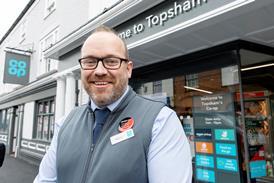Retirement. What images does the word conjure up for you? Do endless hours of reading and relaxation flit into your mind, or is it cultural outings and games with the grandkids? Perhaps you picture yourself soaking up the sun on some far-flung beach, warm waters gently lapping at your toes as you sip an iced drink. Bliss.
Whatever the nature of your dream, the reality of retiring is actually a far more complex experience, and in some cases it can even be quite
traumatic, particularly if you've relocated to a new area.
Retirement is not an event, it's a process, and like all things in life it has emotional highs as well as lows.
People tend to find themselves so caught up in the material aspects of retirement (selling up, moving out, and sorting their finances) that they forget to think about the emotional challenges involved, such as dealing with a loss of purpose, particularly if they were respected community figures in their working days.
Dr Dwight Moore, president of Lifeshift, a company which helps people prepare for retirement, says that it's a process of transition. The first stage, which lasts for about a year, is excitement. "Retirees tend to rest a lot, go on trips, and do things they've always wanted to but never had time for before," he says. However, in their second year, as the novelty begins to wear off, many people begin to ask themselves, 'what do I do now?'.
This is exactly what happened to independent retailer Alec Gardner. Alec and his wife Lyn had worked in the retail industry for more than 40 years when in 2000 they decided to hang up their store's closed sign permanently. "At that point we had been running our London Budgens store for 17 years and we thought it was the right time to call it quits," recalls Alec. "I had a list an arms-length long of odd jobs that I needed to do in the house, and I was determined to do them myself and not get a handyman in."
So, after almost half a century of painfully early starts and queues of customers, Alec and Lyn sold their store and stepped into the soft light of their 'golden years' - only to find them, well, a little tarnished.
"I just got bored," says Alec. "After a few months I'd finished all my odd jobs and I started to think, so what next? Lyn had taken a part-time job at Lakeside shopping centre and each night she would return home 'buzzing' with retail news. I started to get really jealous of her, and felt like I was missing out.
"One night we just sat down together and decided that we missed retail so much, we wanted to go back."
With both children settled in their own lives, Alec and Lyn decided to move out of London and into the glorious Suffolk countryside, where they bought an old house and convenience store. "The store was more than 100 years old and the house 500, and both were in a pretty bad state, but we both love a project so decided to go for it," Alec says.
In 2002, two years after having 'quit' the retail game, the Gardners re-opened their new store, and they haven't looked back since. "It was one of the best decisions we've ever made. I have no real wish ever to retire now. I'll just take on more staff to do the jobs that I don't want to any more," Alec laughs.
Another common, and slightly awkward, consequence of retiring with your partner or spouse is the amount of time you suddenly find you have together. Spending every waking hour side by side can sometimes be hard to adjust to. "The quote is 'I married you for better or for worse, but not for lunch'," Dr Moore adds.
Fortunately this has not been the case for former independent retailers Sheila and Dave Sergeant, who decided to sell their convenience store in the Surrey village of Thames Ditton.
"We've been retired for just over a year now, and it's fantastic," says Sheila. "One of the nicest things about it is the amount of quality time that we get to spend together. When we were running the store it felt like all we did was work, and when we weren't working, all we talked about was work."
Dave and Shelia finally decided to sell up in 2007 after almost 40 years in retail. "We had been in our last store for 19 years when we decided to retire," explains Sheila. "We'd really enjoyed it, however, the last two years had been really tough. The long hours were becoming tiring, prices were going up, and even though we had a very loyal customer base we were finding it harder and harder to compete with the supermarkets."
The couple were lucky in that they never had to put their business and adjoining house on the open market. "The people who ran the chemist next door were keen to buy the store from us, so the whole process was incredibly painless," says Sheila. The two couples then hired an independent stocktaker, and packing up the house wasn't a problem as plenty of old friends and family were on hand to help.
The period leading up to the last day was something of a surreal experience, recalls Sheila. "I was sad that I was having to say goodbye to all my regular customers who over the years had become very close friends. However, I wasn't sad about leaving the business. We were leaving because we wanted to, not because we had to, and we had so much to look forward to."
Sheila and Dave moved to the village of Horsell in Surrey, where they were closer to their daughter and to Sheila's sister. "Since retiring it's as though we have a new lease of life," says Shelia. "When we were running the store we were up at 5am every morning, now we can get up whenever we want, and even have tea in bed, a luxury that we never had before."
And the couple certainly aren't short of things to do. "We visit the family, often do the school run for the grandchildren, and generally take time to do nice things with each other. I've actually been really extravagant lately and even bought a sporty little car, and I'm in the middle of redecorating the new house."
Sheila and Dave have been back to the store to collect post a few times since leaving. "It's a strange feeling going back, but we've been made to feel so welcome each time by the new owners and we've built up a really strong relationship with them. We've sold the store, but we've gained new friends, and we couldn't be happier."
However, for some people, retirement just isn't on the cards at all. Take Simon Smith Group founder Brian Tew. He's been working in retail for almost 40 years, and even though it's now a family partnership, Brian is still in the office 365 days a year. "I can't bear the thought of life without work," he says. "As well as being in the office almost every day, I still spend a large amount of time in my store. I love it, and don't know what I'd do with myself otherwise."
One couple who seem to have got the mix just right are Daniel and Doreen Holborn. After some 30 years in the retail trade, the husband and wife team are now taking a much deserved back-seat thanks to their eldest son Dean, who is driving the business into the future.
"To be honest, if Dean hadn't got involved in the business we would definitely have sold up by now," says Doreen. "It's incredibly hard work running a store, and it's getting tougher all the time. We couldn't have carried on without the family, as no matter how good they are, unaffiliated staff just aren't
the same."
Dean's involvement, and the help he receives from his brother and sister, means that Daniel and Doreen have never had to consider selling up. Instead, the couple, who have just come back from a luxurious 10-day cruise, are able to work in the store for a few hours each week.
"It's been wonderful to watch how Dean has transformed the business," says Doreen. "And in particular to see the effect of all the technological advances he's made. We would never have dreamt of things like epos in 1974, let alone used such technology to its full potential."
Being semi-retired allows Daniel and Doreen to take holidays whenever they want to, and indulge in much-deserved 'lie-ins' in the morning. "We also love to garden, and we regularly go out for lunch with friends," Doreen adds.
However, Daniel points out that the secret for them lies in the right balance. "It's wonderful to have the option of doing the odd hour in the store here and there. We still know many of the regular customers, and it's lovely to catch up with them. It also keeps your brain ticking over, which at our age is important," he laughs. "We've got the best of both worlds, and we love it."
Allen Shepherd,
Director of the Corporate Retail team at Christie & Co.
"Having decided to sell your retail business, do some 'housekeeping' before you contact an agent. This includes ensuring the business is shown at its best and that all relevant paperwork will be available for the agent and any prospective buyers.
"Do your own research. Study the trade and local press, and agents' websites for agents selling similar-style businesses in your region. Then pick up the phone and talk to prospective agents to assess which you feel is most likely to achieve the right deal at the right price.
"Then meet with agents and put them on the spot. Any reputable agent should be able to provide examples of specialist retail businesses currently available for sale which compare to your own, and more importantly, examples of what they've sold.
"A diligent agent will look carefully at your trade and ancillary areas, and your private accommodation. They will ask you about the history of the business, and current trade and future prospects.
"Once you've chosen your agent, and prior to the placement of marketing for the business, gather together the following information: staff details (a list of names, how long employed, full- or part-time, salary and job description); weekly turnover information; a copy of the lease (if your business is leasehold); and an inventory of the fixtures and fittings to be included in the sale."
Selling up could be the most important financial deal you'll ever make. For many owners, selling the business can also be emotionally difficult. And unless you've sold another business previously, you'll have no experience to draw on.
Try to plan as far ahead as you possibly can so that you can pick the best moment, rather than be rushed into a quick sale. The general state of the economy, and the sector's performance, can also have an effect on the sale, as it's much easier for a trade buyer to fund a purchase when their own business is doing well, interest rates are low and banks are keen to lend.
Aim to put your business on the market when profits are increasing and look likely to grow further, and think about the impact of sales cycles and seasonal fluctuations.
Whatever the nature of your dream, the reality of retiring is actually a far more complex experience, and in some cases it can even be quite
traumatic, particularly if you've relocated to a new area.
Retirement is not an event, it's a process, and like all things in life it has emotional highs as well as lows.
People tend to find themselves so caught up in the material aspects of retirement (selling up, moving out, and sorting their finances) that they forget to think about the emotional challenges involved, such as dealing with a loss of purpose, particularly if they were respected community figures in their working days.
Dr Dwight Moore, president of Lifeshift, a company which helps people prepare for retirement, says that it's a process of transition. The first stage, which lasts for about a year, is excitement. "Retirees tend to rest a lot, go on trips, and do things they've always wanted to but never had time for before," he says. However, in their second year, as the novelty begins to wear off, many people begin to ask themselves, 'what do I do now?'.
This is exactly what happened to independent retailer Alec Gardner. Alec and his wife Lyn had worked in the retail industry for more than 40 years when in 2000 they decided to hang up their store's closed sign permanently. "At that point we had been running our London Budgens store for 17 years and we thought it was the right time to call it quits," recalls Alec. "I had a list an arms-length long of odd jobs that I needed to do in the house, and I was determined to do them myself and not get a handyman in."
So, after almost half a century of painfully early starts and queues of customers, Alec and Lyn sold their store and stepped into the soft light of their 'golden years' - only to find them, well, a little tarnished.
"I just got bored," says Alec. "After a few months I'd finished all my odd jobs and I started to think, so what next? Lyn had taken a part-time job at Lakeside shopping centre and each night she would return home 'buzzing' with retail news. I started to get really jealous of her, and felt like I was missing out.
"One night we just sat down together and decided that we missed retail so much, we wanted to go back."
With both children settled in their own lives, Alec and Lyn decided to move out of London and into the glorious Suffolk countryside, where they bought an old house and convenience store. "The store was more than 100 years old and the house 500, and both were in a pretty bad state, but we both love a project so decided to go for it," Alec says.
In 2002, two years after having 'quit' the retail game, the Gardners re-opened their new store, and they haven't looked back since. "It was one of the best decisions we've ever made. I have no real wish ever to retire now. I'll just take on more staff to do the jobs that I don't want to any more," Alec laughs.
Another common, and slightly awkward, consequence of retiring with your partner or spouse is the amount of time you suddenly find you have together. Spending every waking hour side by side can sometimes be hard to adjust to. "The quote is 'I married you for better or for worse, but not for lunch'," Dr Moore adds.
Fortunately this has not been the case for former independent retailers Sheila and Dave Sergeant, who decided to sell their convenience store in the Surrey village of Thames Ditton.
"We've been retired for just over a year now, and it's fantastic," says Sheila. "One of the nicest things about it is the amount of quality time that we get to spend together. When we were running the store it felt like all we did was work, and when we weren't working, all we talked about was work."
Dave and Shelia finally decided to sell up in 2007 after almost 40 years in retail. "We had been in our last store for 19 years when we decided to retire," explains Sheila. "We'd really enjoyed it, however, the last two years had been really tough. The long hours were becoming tiring, prices were going up, and even though we had a very loyal customer base we were finding it harder and harder to compete with the supermarkets."
The couple were lucky in that they never had to put their business and adjoining house on the open market. "The people who ran the chemist next door were keen to buy the store from us, so the whole process was incredibly painless," says Sheila. The two couples then hired an independent stocktaker, and packing up the house wasn't a problem as plenty of old friends and family were on hand to help.
The period leading up to the last day was something of a surreal experience, recalls Sheila. "I was sad that I was having to say goodbye to all my regular customers who over the years had become very close friends. However, I wasn't sad about leaving the business. We were leaving because we wanted to, not because we had to, and we had so much to look forward to."
Sheila and Dave moved to the village of Horsell in Surrey, where they were closer to their daughter and to Sheila's sister. "Since retiring it's as though we have a new lease of life," says Shelia. "When we were running the store we were up at 5am every morning, now we can get up whenever we want, and even have tea in bed, a luxury that we never had before."
And the couple certainly aren't short of things to do. "We visit the family, often do the school run for the grandchildren, and generally take time to do nice things with each other. I've actually been really extravagant lately and even bought a sporty little car, and I'm in the middle of redecorating the new house."
Sheila and Dave have been back to the store to collect post a few times since leaving. "It's a strange feeling going back, but we've been made to feel so welcome each time by the new owners and we've built up a really strong relationship with them. We've sold the store, but we've gained new friends, and we couldn't be happier."
However, for some people, retirement just isn't on the cards at all. Take Simon Smith Group founder Brian Tew. He's been working in retail for almost 40 years, and even though it's now a family partnership, Brian is still in the office 365 days a year. "I can't bear the thought of life without work," he says. "As well as being in the office almost every day, I still spend a large amount of time in my store. I love it, and don't know what I'd do with myself otherwise."
One couple who seem to have got the mix just right are Daniel and Doreen Holborn. After some 30 years in the retail trade, the husband and wife team are now taking a much deserved back-seat thanks to their eldest son Dean, who is driving the business into the future.
"To be honest, if Dean hadn't got involved in the business we would definitely have sold up by now," says Doreen. "It's incredibly hard work running a store, and it's getting tougher all the time. We couldn't have carried on without the family, as no matter how good they are, unaffiliated staff just aren't
the same."
Dean's involvement, and the help he receives from his brother and sister, means that Daniel and Doreen have never had to consider selling up. Instead, the couple, who have just come back from a luxurious 10-day cruise, are able to work in the store for a few hours each week.
"It's been wonderful to watch how Dean has transformed the business," says Doreen. "And in particular to see the effect of all the technological advances he's made. We would never have dreamt of things like epos in 1974, let alone used such technology to its full potential."
Being semi-retired allows Daniel and Doreen to take holidays whenever they want to, and indulge in much-deserved 'lie-ins' in the morning. "We also love to garden, and we regularly go out for lunch with friends," Doreen adds.
However, Daniel points out that the secret for them lies in the right balance. "It's wonderful to have the option of doing the odd hour in the store here and there. We still know many of the regular customers, and it's lovely to catch up with them. It also keeps your brain ticking over, which at our age is important," he laughs. "We've got the best of both worlds, and we love it."
Be prepared
Allen Shepherd,
Director of the Corporate Retail team at Christie & Co.
"Having decided to sell your retail business, do some 'housekeeping' before you contact an agent. This includes ensuring the business is shown at its best and that all relevant paperwork will be available for the agent and any prospective buyers.
"Do your own research. Study the trade and local press, and agents' websites for agents selling similar-style businesses in your region. Then pick up the phone and talk to prospective agents to assess which you feel is most likely to achieve the right deal at the right price.
"Then meet with agents and put them on the spot. Any reputable agent should be able to provide examples of specialist retail businesses currently available for sale which compare to your own, and more importantly, examples of what they've sold.
"A diligent agent will look carefully at your trade and ancillary areas, and your private accommodation. They will ask you about the history of the business, and current trade and future prospects.
"Once you've chosen your agent, and prior to the placement of marketing for the business, gather together the following information: staff details (a list of names, how long employed, full- or part-time, salary and job description); weekly turnover information; a copy of the lease (if your business is leasehold); and an inventory of the fixtures and fittings to be included in the sale."
Go at your own pace
Selling up could be the most important financial deal you'll ever make. For many owners, selling the business can also be emotionally difficult. And unless you've sold another business previously, you'll have no experience to draw on.
Try to plan as far ahead as you possibly can so that you can pick the best moment, rather than be rushed into a quick sale. The general state of the economy, and the sector's performance, can also have an effect on the sale, as it's much easier for a trade buyer to fund a purchase when their own business is doing well, interest rates are low and banks are keen to lend.
Aim to put your business on the market when profits are increasing and look likely to grow further, and think about the impact of sales cycles and seasonal fluctuations.











![WG-4003[58]](https://d2dyh47stel7w4.cloudfront.net/Pictures/274x183/4/5/1/353451_wg400358_6083.jpg)








No comments yet